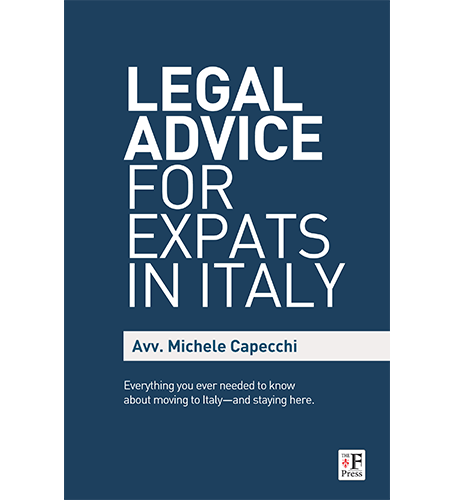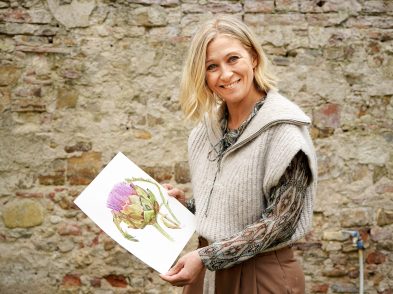Financial expert and ten times New York Times bestselling author David Bach interviews international lawyer Michele Capecchi to gain insight on how to make your Italian dream move come true while avoiding all the pesky legal pitfalls that could turn it into a nightmare.
David Bach: The main character Zoe Daniels in my book The Latte Factor considers taking a “radical sabbatical”, and I decided to do the same with my family in 2018. You’re the attorney that my wife Alatia found through The Florentine when we were considering a move to Italy. You’re known as “Italian Legal Whisperer”, helping people who want to come here for longer than just as tourists.
Michele Capecchi: It’s an honour to be interviewed by you, David. I started as a traditional civil law lawyer. I graduated from law school in Florence and began practicing at your usual law firm. At some point, I realized just how big the international community was in Florence, so I started working in English for clients that had specific issues. I decided to go to California to get my master’s degree in American law and international legal practice before spending some time in China and in New York. Then I brought my business back to Italy, which is when I started to write my legal column in The Florentine. It quickly became my speciality to help people to bring their life, family and business to Italy. That’s how I’ve spent the last 15 years. 99 percent of the time I’m working with foreigners who are trying to buy property, making investments or taking a sabbatical in Italy, just like you did.
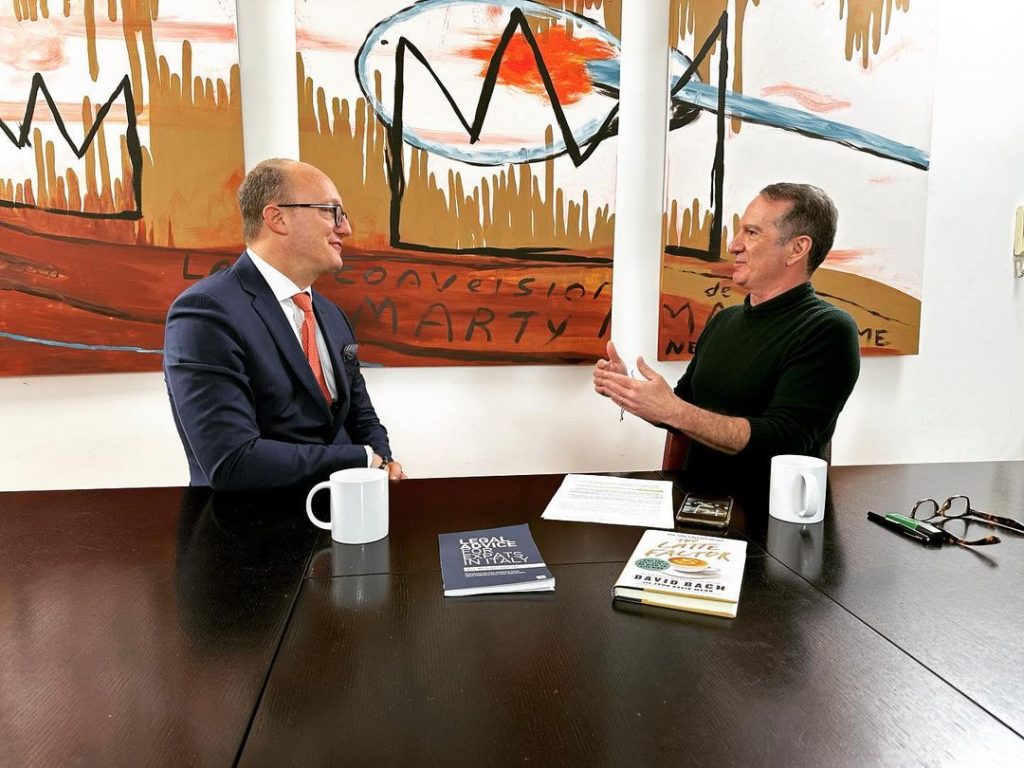
David: Tourists can come to Italy for up to 90 days. If you want to come for longer, what needs to happen?
Michele: Here’s what you mustn’t do. Don’t make the assumption that you can extend your stay beyond those 90 days if you come as an American tourist, without a visa. You can’t just go to the immigration office with your passport. It doesn’t work like that. After 90 days, you have to leave Italy and the European Union. Period.
David: What happens if you do stay longer?
Michele: There are more and more cases of people having problems at the airport on leaving the Schengen Zone. Each country has different border rules, but they run your passport and know exactly how many days you’ve been in the EU. The main consequence of overstaying affects your ability to come back in the future. You get blacklisted for not respecting the law. You might even lose your visa waiver status. I know people who were bounced back the next time they landed in the EU after staying longer than the allowed 90 days.
David: So, what must you do to stay longer than three months?
Michele: Italy provides an extensive list of visa schemes that you can request through the Italian Consulate in your home country. There’s no visa available for tourists who want to stay longer than 90 days. You can come as a student, for business, to set up a company, run an investment or take a sabbatical year (if you have a passive income). It depends on the purpose of your stay. We arrange online meetings with our clients at the beginning of the process to assess their case. Going back to what not to do, something that comes up often is that people receive incorrect advice that if they buy a house, they can make it their permanent domicile and gain the right to stay in Italy. That’s not the case. There’s no property visa in Italy.
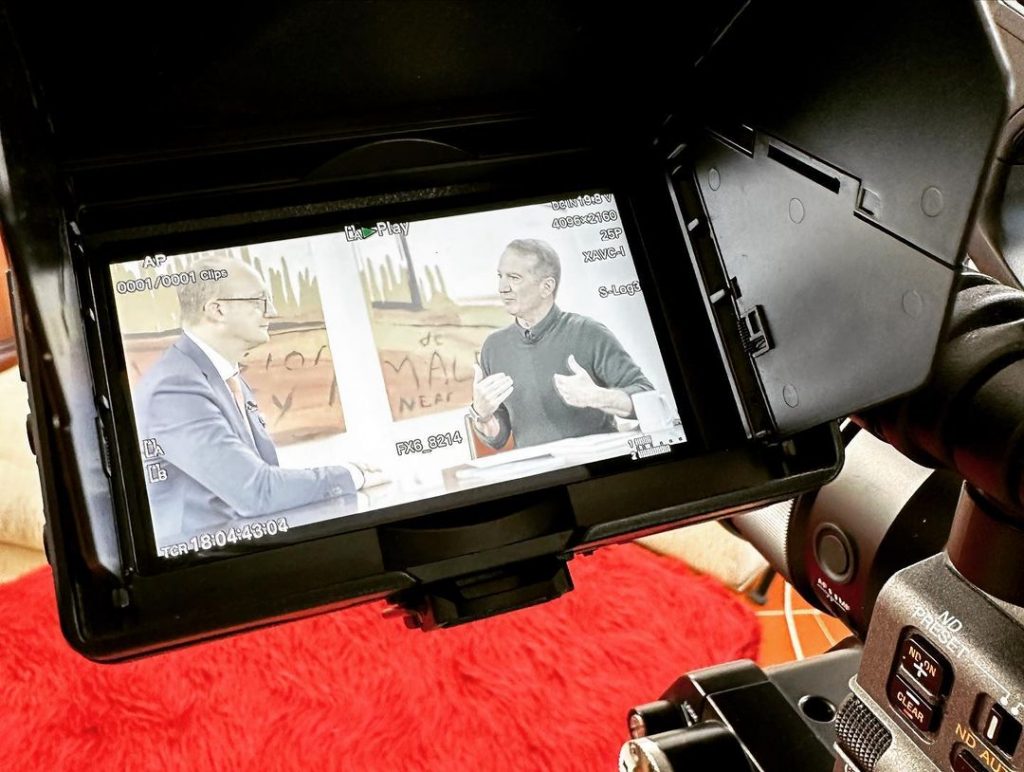
David: The process of moving to Italy is something that you plan well in advance. It took us three months to get a date at the Consulate in New York. We took a binder that was about four inches thick, which contained every imaginable document. It was harder than applying to college. If you get anything wrong, you won’t get your visa. I know that some people try to do this themselves, but why is it so important to hire an attorney to help you?
Michele: Some people are savvy and can remodel their house by themselves, but mostly you need professional help. Often, it’s one shot, one kill, meaning you have to bring the right documents to the Consulate the first time. For example, if you’re moving with your spouse and kids from the United States, you need to present your original marriage certificate and their birth certificates with an apostille, which certifies that it can be used abroad. That’s something we can advise you about. If you’re missing something in that folder, you might have to go to the back of the queue and wait for another 30-60 days before you get called in again.
David: Everything goes right and you get the visa, so you take the plane and land in Italy. There’s another process that you have to do, if I remember correctly.
Michele: Assuming that you’ve got a visa and you’re done is a big mistake. Within eight days of arriving in Italy, you need to go to the post office and get a kit that contains forms that must be filled out to apply for your permit to stay (permesso di soggiorno). Once you’ve filled them in, the post office mails the documents to the immigration office of the place where you are living. The immigration office will give you an appointment two or three months later for fingerprinting and reviewing your documents. A couple of months later, you’ll be invited back to collect your permit to stay, which will be renewed annually (or every two years, depending on the case) if you choose to stay longer. A visa is a sticker that’s attached to your passport provided by the Italian Consulate and it allows you to go back and forth between Italy and the other country. The permit to stay is a plastic card that actually makes you legal to live in Italy. Thinking that having your visa makes you fine from an immigration point of view in Italy is a misconception.
“I’m working on a podcast that’s called The Italian Legal Whisperer that tells us everything you need to know to move your life, family and business to Italy in order to live the Italian dream with none of the nightmares.”
David: Tell me about the importance of having a codice fiscale. It feels like you can’t do anything without it.
Michele: A codice fiscale is more or less the equivalent of your social security number. It’s used in almost every economic transaction. You’ll need it to hire a car or to rent a property. It doesn’t mean that you’re an Italian taxpayer; it’s just a way to identify you in a business transaction. My advice is that it’s useful to have a codice fiscale if you’re coming to Italy not as a tourist. Healthcare is another big thing. After you’ve got your permit to stay, the next thing to do is to register with the town hall where you’re living and become a resident. Having a permanent domicile (residenza) allows you to join the public healthcare system on a voluntary basis with the incredible benefits it provides. If you don’t become a permanent resident, you don’t qualify for the long-term permit to stay, which you can apply for after five years in Italy. If you remain in Italy for ten years as a permanent resident, even if you don’t have Italian blood, you can obtain Italian citizenship. After one year of residenza, you are expected to get an Italian driving license (as you can’t drive forever with your international driving license from America).
David: You helped us to find an apartment, sign a lease and open an Italian bank account. Now we’re interested in investing in real estate. I read an article a week ago that said that more Americans are looking to move abroad for retirement and in general than ever before. How does someone start the real estate investment process in Italy?
Michele: It’s very different to the way you do things in America. It starts with the people involved. The notary is a government-appointed officer who certifies the legality of the documents needed to complete the real estate transaction. He/she decides the transfer of ownership from the seller to the buyer and collects the property taxes. The role of the realtor is also very different. These are professionals certified by the local Chamber of Commerce who act as the liaison between the seller and the buyer, and receive commission from both sides. The other thing to consider is that it’s not easy to obtain a mortgage from an Italian bank if your income is not coming from within Italy.
David: With Covid, many of us have realized that we can work from anywhere. Is there a digital nomad visa yet in Italy?
Michele: Digital nomad is one of the most searched-for terms when it comes to Italian visas. It exists on paper referring to people who are able to work remotely and who could be eligible for highly qualified visas in certain circumstances. The law needed to be implemented by a regulation determining the requirements for this visa to be requested. So far, we still do not have those implementing rules. However, if you are a digital nomad, the digital nomad visa is not the only way. What you do could be classed as “freelance activities” that are already regulated by a freelance visa, which we’ve been using for the past 15 years.
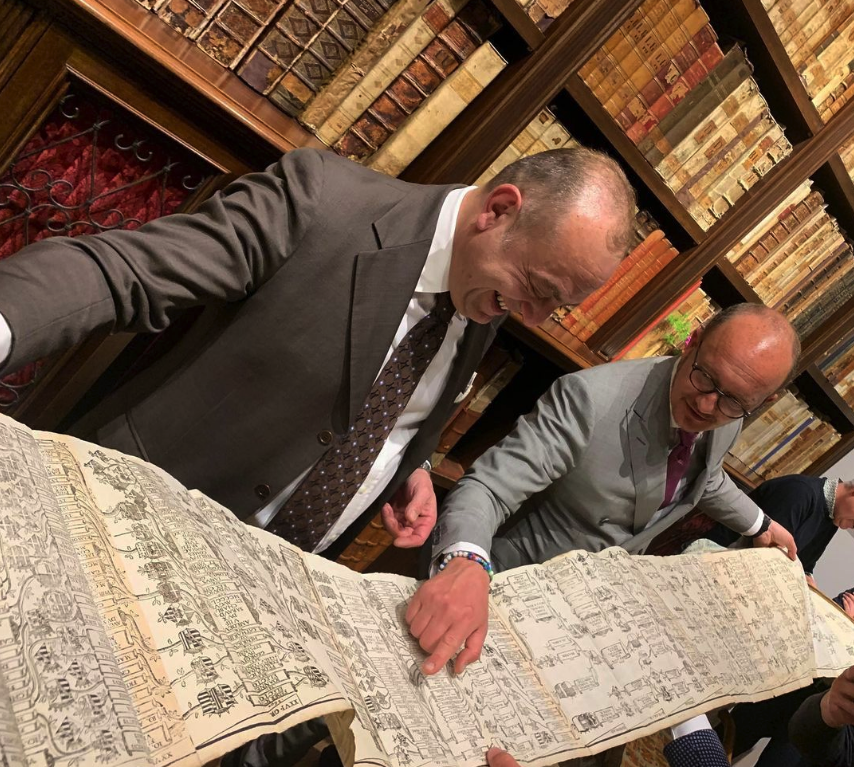
David: You mentioned to me that there are approximately 20 million Americans who could reclaim Italian citizenship. How do you know if you’re a candidate for Italian citizenship?
Michele: Italy is one of the most generous countries in the EU in terms of allowing people to recover citizenship. I say “recover” because there are potentially millions of Americans who are eligible for Italian citizenship through their ancestors who arrived in America from Italy in the late 18th century. Italian citizenship is passed down through the blood (jus sanguinis). If your parent was an Italian citizen when you were born because he/she didn’t renounce his/her Italian citizenship, you obtain the same Italian blood. As long as you can prove an uninterrupted chain of Italian blood starting with your great-grandparent, you could be entitled to Italian citizenship. Our legal team includes incredible genealogists, who actually go to the town hall of the place where your ancestor came from in Italy and dig into dusty archives to track down key documents.
David: Thanks for taking the time to give all this free advice, Michele. You gave people a lot of knowledge here.
Michele: This is just the tip of the iceberg. It’s great to share some generic principles, but it’s important to understand that none of this can be taken as legal advice as every case is different. Don’t make the mistake of relying on social media or what other people have done before you. What we’ve discussed in this chat is food for thought, but get in touch to find out more.
Find out more about Michele Capecchi’s legal services or email him at info@capecchilegal.com. Follow @capecchilegal on Instagram.
Find out more about David Bach.


